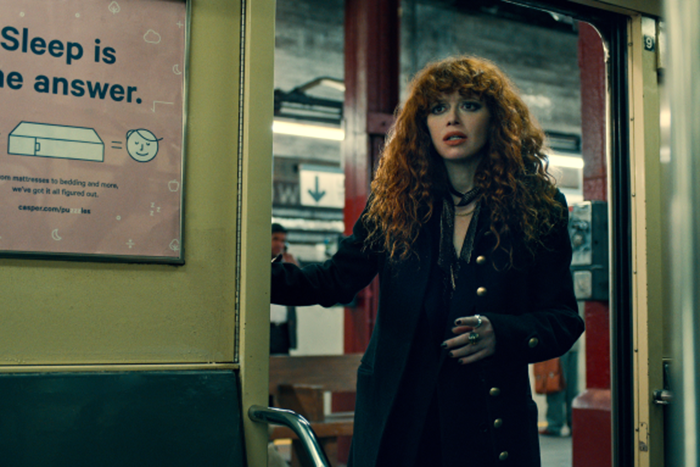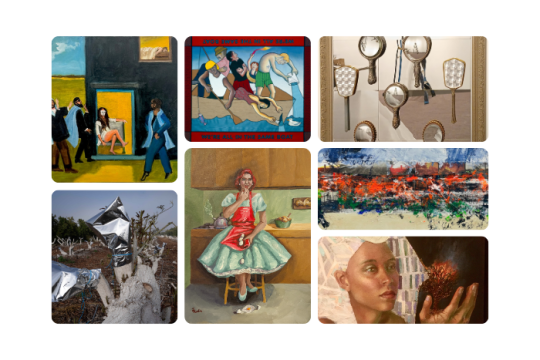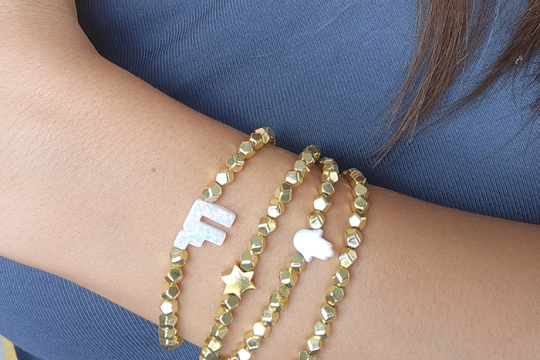
Image courtesy of Netflix
[Spoiler alert]
In the first season of Netflix's breakout comedy/drama, Russian Doll, Nadia (Natasha Lyonne), a dyed-in-the-wool bohemian New Yorker, finds herself stuck in a time loop: dying and waking up over and over again on her 36th birthday. Nadia is an old-school Jewish New Yorker, and the choice of 36 is a clear nod to double chai, the Hebrew letters symbolizing "life." In one of her death scenes, as an elevator plummets to the ground, she finds herself beside a man equally nonplussed about their fate. This is Alan (Charlie Barnett), Nadia's opposite in every way, who is stuck in the same time loop. Together, they find a way to break the cycle, discovering that the only way out of this quantum entanglement is by forging a bond with one another.
Season two begins four years later, as the clock ticks down to Nadia's 40th birthday. Nadia hasn't changed much. She's wearing the same billowing black coat and her signature gold-rimmed sunglasses. She still mumbles to herself in a coarse New York accent, while stumbling around in various states of intoxication, like she's been let loose from a Hunter S. Thompson novel.
Occasional epiphanies cut through the clouds, such as when she realizes she can board a mystical train that takes her back, first to 1982, then 1968 New York City. There, in an even more surreal twist, she finds herself inhabiting her mother's body, pregnant with herself in the third trimester. While her mother Lenora (Chloe Sevigny), who has schizophrenia, drinks, smokes, and carouses with her sleazy boyfriend (Sharlto Copley), Nadia learns that her mother lost the family fortune of 150 gold Krugerrands, valued today at over $150,000.
Nadia, able to take the train back and forth from the present to the past, devises a plan: she can change her life's entire trajectory by retrieving her lost inheritance. Her pursuit of the gold takes her from 1968 New York to 1944 Budapest. There, she inhabits the body of her grandmother, Vera, who is hiding from the Nazis with her friend Delia, a woman of Romani heritage. Nadia learns that an even greater fortune was taken from her grandmother to be loaded by the Nazis onto the historic "Hungarian Gold Train" along with the wealth of the rest of Hungary's 825,000 Jews.
With the multiple layers of time travel and body swapping, the second season is far more complicated than the first, which focused on Lyonne's character herself. This season examines the entire family, unfolding back to the source of the original wound - the Holocaust. This is particularly poignant, as third-generation Holocaust survivors are now coming to terms with the generational trauma of their family's' pasts.
Nadia's grandmother has learned to be ever vigilant and prepared. As Delia (Athina Papadimitriu) explains, Krugerrands are "the most stable currency," as opposed to the Pengo, the currency of Hungary that became useless during World War II. Nadia's grandmother would never again allow herself to be dependent on worthless slips of paper. The Krugerrands represent control and self-reliance. Better yet, they fit easily in a leather satchel and can be taken with her at a moment's notice. Or, in this case, easily taken from her.
Lenora steals the Kruggerands and uses them to buy a fancy convertible. The money has come to symbolize Vera's strict control over everything. The act of rebellion is a stab at everything Vera stands for. The result of this intergenerational strife is that Nadia is left without a stable mother or a reliable inheritance. Instead, she only receives the baggage of a feud which pits a survivor's wariness against a second-generation daughter's need to lash out.
In Nadia's travels to the past, she meets her Aunt Ruth (Annie Murphy), a friend of her mother with bad luck in husbands but loyal and caring beyond all measure. It's Ruth (played by Elizabeth Ashley in the present) who serves as the only family Nadia has left, the only constant in a lifetime of upheaval. But in the present, Ruth is in and out of the hospital. Between Nadia's travels to the past, she gets ever-worsening news about Ruth's health upon her return.
Russian Doll has a biblical-like quality in which time is a god who teaches, and there's a lesson here for Nadia. As Nadia chases a bag of gold in the past, hoping money will heal her wound, the only family she has is slipping away in the present. If season one taught us that pain and suffering can only be alleviated with a helping hand, here, time has a harsher message.
Nadia eventually teams up with Alan, who has been on his own journey back to 1960s East Berlin. Nadia has refused to play by time's rules and done the only thing she can think of to fight back. Only Alan can bring her back from the ledge, coaxing her into making amends.
In this season, time is immutable. It can be questioned, but not changed. Family can be understood, but not altered. The self, in this case, the result of intergenerational trauma, must be accepted. In Russian Doll, the only way to see the good in the world is to stop looking back, to stop journeying inward, and to the wake up in the present.
Season Two of Russian Doll is now playing on Netflix.
Related Posts

The Art of Wisdom: Proverbs, Adages, and Maxims, and the Images They Inspire

Wearing Strength: Jewelry as a Symbol of Jewish Resilience


